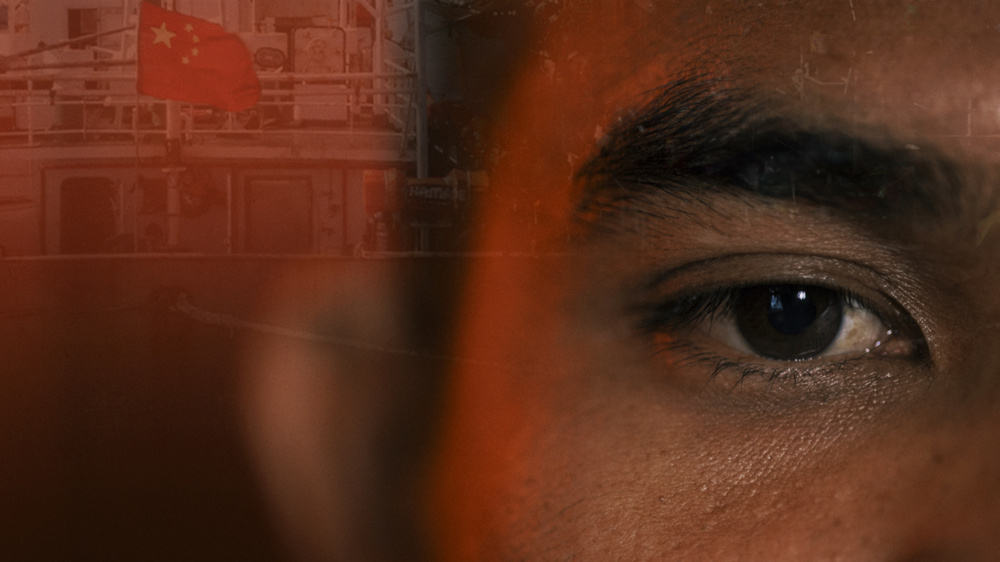
Chinas Hochseeflotte auf Raubzug in Ostafrika – Exporte aus illegaler Fischerei in die EU möglich: neuer EJF-Bericht
The Chinese deep sea fleet is fishing illegally in the Southwest Indian Ocean (SWIO), exploiting crews aboard its vessels and threatening traditional artisanal fisheries in countries in East Africa, according to a new report from the Environmental Justice Foundation (EJF).
All crew members interviewed in the investigation reported human rights violations, and more than half witnessed physical violence. Four people died, one of them presumably by suicide.
Fish and seafood caught by the fleet potentially reaches important international markets, including Europe: 73% of vessels suspected of illegal fishing and human rights violations were on the list of approved exporters to the EU at the time of the research .
The Chinese deep-sea fishing fleet is the largest in the world and is responsible for serious human rights abuses, animal cruelty and illegal fishing. Since 2020, EJF has conducted several comprehensive investigations into the fleet. The new report is the first of its kind to expose their illegal activities in the East Africa region.
All crew members of the Chinese tuna fleet in the southwest Indian Ocean interviewed by EJF reported experiencing some form of human rights violations and/or seeing illegal fishing. 80% of respondents reported cutting off shark fins, 96% reported excessive working hours and 55% reported physical violence. The new investigation also provides evidence of four deaths aboard Chinese tuna vessels between 2017 and 2023, including a suspected suicide of a crew member.
Sixteen fishermen interviewed on Chinese trawlers in Mozambique testified to widespread criminality, with 81% reporting physical abuse and half reporting the deliberate capture and/or mutilation of endangered marine animals.
The fleet's fishing products potentially reach important international markets, including Europe, the United States, Japan and South Korea. 73% of the vessels suspected of illegal fishing and human rights violations were on the list of approved exporters to the EU at the time of the EJF research.
The scale of criminal activity by the Chinese fleet in the southwest Indian Ocean is in direct contradiction to China's stated interest in the sustainable development of the region. As part of the “Belt and Road Initiative” (BRI), known in Germany as the “New Silk Road” , China has invested massively in the fishing sector of the countries bordering the southwest Indian Ocean. However, new EJF research shows that China's investments are far from benefiting local fishing communities. On the contrary: they harm the traditional artisanal fisheries of these countries, as illegal fishing and the killing of marine animals have increased and are acutely threatening marine ecosystems.
Steve Trent, CEO and founder of the Environmental Justice Foundation (EJF): “Our extensive research raises a key question: Is this abuse taking place at the behest of Beijing, or is the Chinese government failing in its responsibility to manage its fleet? The evidence is so clear that either one or the other must be true.”
“China's deep sea fleet is responsible for serious human rights violations and illegal fishing in the southwest Indian Ocean. The crimes are not limited to a single ship or area, but occur aboard almost every Chinese vessel we have investigated, across all areas and jurisdictions. This abuse is systemic.”
“While the Chinese government portrays its investment in the region as a win-win, in reality it is causing direct harm. The price is paid by coastal communities, crews who are victims of human rights abuses, and the countries bordering the southwest Indian Ocean that are struggling with corruption and debt as a result of China's investments.”
“It is high time for the Indian Ocean Tuna Commission (IOTC) to target the Chinese deep sea fleet and its massive investments. Coastal, market, port and flag states should do the same, as should the government of the People's Republic of China itself. Transparency in global fisheries urgently needs to be improved so that it is clear who is fishing, how, where and what. While illegal fishing in the southwest Indian Ocean is not solely attributable to the Chinese high seas fleet, the shocking evidence of abuse and criminality across the region requires clear action now.”
END
Your contact person:
Nikola Klein, Press & Communication EJF
SIGN UP FOR OUR EMAILS AND STAY UP TO DATE WITH EJF